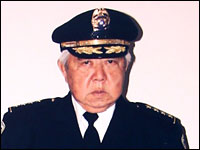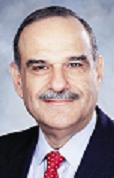New Orleans wants you back ...
From Jessie Halladay and The Courier-Journal:
… a visit to the Big Easy is different now.
Crowds are smaller. Getting a table at Cafe Du Monde for a batch of melt-in-your-mouth beignets covered in powdered sugar isn't quite as tough, and you can make your way down Bourbon Street with much less jostling.
Convention business is only 40 percent of what it was before Katrina struck in August 2005. Rooms are often easier to book, and many hotels run specials, making staying in New Orleans a cheaper prospect than before. Louis Armstrong International Airport now offers 109 flights a day to 32 cities. That's 75 percent of pre-hurricane flights.
But despite the changes, much of what tourists loved about New Orleans still exists.
In the city's beloved French Quarter, few signs of destruction linger. Streets remain lined with shops waiting to cater to eager travelers. Tarot card readers promise a glimpse into the future. Artists aim to capture the image of your vacation in just moments of sketching. Circus-like entertainers still wow crowds with their acrobatics.
Along Bourbon Street, bars with flashing lights and blaring music offer a host of frozen concoctions, from the ever-popular (if ironic) Hurricane to pina coladas…
In 2004, a record 10.1 million people visited New Orleans, according to the New Orleans Convention and Visitors Bureau. Before Katrina, the city was on pace for another record year. But in 2006, the bureau estimates, only about 40 percent of leisure travelers have returned to the city.
"Our biggest challenge is still perception of the city," said Kelly Schulz, who works with the visitors bureau. Some people are coming to the city to help, turning their trips into a working vacation that has become known as "voluntourism." Schulz said many conventions are building in a public service component to their visit.
Church groups and students on spring break, for instance, have come to do volunteer work and take in some of the attractions at the same time.
"If you want to help New Orleans, the best thing you can do is come here as a tourist," Schulz said.
For some visitors, the destruction itself has become part of the tour. Buses routinely drive through the ravaged 9th Ward, showing people where the levees broke. Schulz said while that practice has offended some residents, she encourages visitors to see the damage the hurricane left the city to contend with, because it will shape the future of the Crescent City.
A big part of the recovery will be thanks to tourist dollars. And because of that, visitors are often treated to an extra dose of friendliness from grateful New Orleanians.
"The New Orleans that people know and love… all that stuff is still here," Schulz said. "And in some cases, the experience will be even better."
… a visit to the Big Easy is different now.
Crowds are smaller. Getting a table at Cafe Du Monde for a batch of melt-in-your-mouth beignets covered in powdered sugar isn't quite as tough, and you can make your way down Bourbon Street with much less jostling.
Convention business is only 40 percent of what it was before Katrina struck in August 2005. Rooms are often easier to book, and many hotels run specials, making staying in New Orleans a cheaper prospect than before. Louis Armstrong International Airport now offers 109 flights a day to 32 cities. That's 75 percent of pre-hurricane flights.
But despite the changes, much of what tourists loved about New Orleans still exists.
In the city's beloved French Quarter, few signs of destruction linger. Streets remain lined with shops waiting to cater to eager travelers. Tarot card readers promise a glimpse into the future. Artists aim to capture the image of your vacation in just moments of sketching. Circus-like entertainers still wow crowds with their acrobatics.
Along Bourbon Street, bars with flashing lights and blaring music offer a host of frozen concoctions, from the ever-popular (if ironic) Hurricane to pina coladas…
In 2004, a record 10.1 million people visited New Orleans, according to the New Orleans Convention and Visitors Bureau. Before Katrina, the city was on pace for another record year. But in 2006, the bureau estimates, only about 40 percent of leisure travelers have returned to the city.
"Our biggest challenge is still perception of the city," said Kelly Schulz, who works with the visitors bureau. Some people are coming to the city to help, turning their trips into a working vacation that has become known as "voluntourism." Schulz said many conventions are building in a public service component to their visit.
Church groups and students on spring break, for instance, have come to do volunteer work and take in some of the attractions at the same time.
"If you want to help New Orleans, the best thing you can do is come here as a tourist," Schulz said.
For some visitors, the destruction itself has become part of the tour. Buses routinely drive through the ravaged 9th Ward, showing people where the levees broke. Schulz said while that practice has offended some residents, she encourages visitors to see the damage the hurricane left the city to contend with, because it will shape the future of the Crescent City.
A big part of the recovery will be thanks to tourist dollars. And because of that, visitors are often treated to an extra dose of friendliness from grateful New Orleanians.
"The New Orleans that people know and love… all that stuff is still here," Schulz said. "And in some cases, the experience will be even better."







